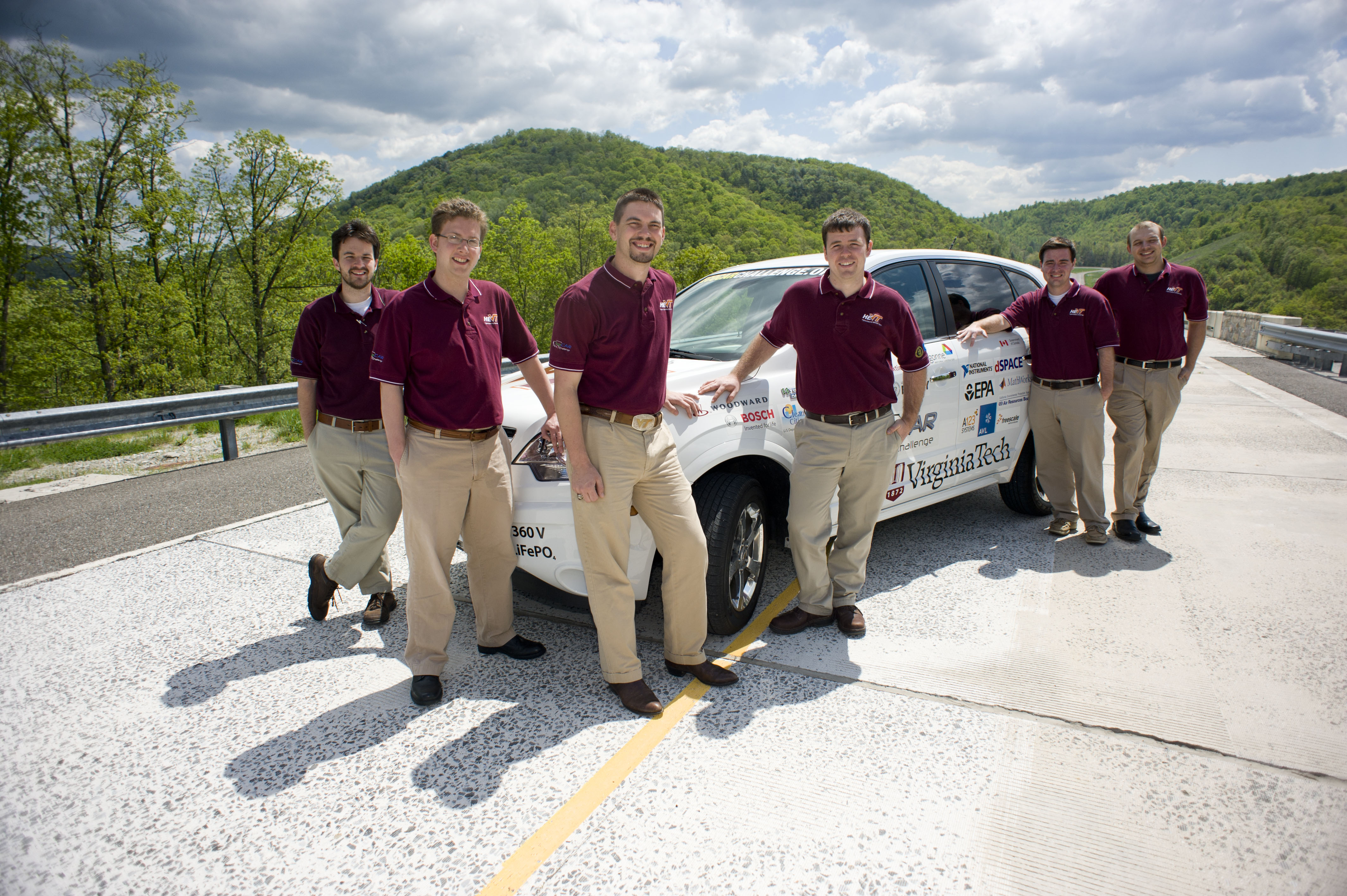Engineering students from one Virginia Tech lab get hands dirty, grasp future careers

At Virginia Tech’s Joseph F. Ware Jr. Advanced Engineering Laboratory, College of Engineering students don’t just listen to lectures. They build engines and electronic components for hybrid, low-fuel cars and motorcycles; and create wings and propellers of miniature airplanes.
The Ware lab is located inside a nondescript building that once housed a laundry facility for the Corps of Cadets on the Virginia Tech campus. During the University Open House on Saturday, Nov. 12, visitors will have a chance to see why students say they love the work, the grime, and the challenges.
“The Ware Lab is a place where I can be creative,” said Kimberly Wenger, a recent mechanical engineering graduate. While a senior, she served as student leader of Virginia Tech’s Blind Driver Challenge team. “It is a chance for all students to get their heads out of their books and apply all the ideas that professors teach us in a real-world application. It’s a place where you can learn skills necessary for your future. You can make mistakes and learn from them.”
The facility is billed as the cornerstone of the College of Engineering’s efforts to provide undergraduate students with experience that will better prepare them to enter the workforce. Wenger, originally from Ponte Vedra Beach, Fla., is a good example; she now works at National Instruments in Austin, Texas. National Instruments long has been a supporter of the Ware Lab, and provided assistance for the ongoing Blind Driver project.
Few other recent engineering team projects exemplify the Ware Lab success in training students for the professional workforce than the HybridElectric Vehicle Team. This past summer, it won the EcoCAR Challenge, a three-year competition design to spur U.S. and Canadian science and engineering students to build more energy-efficient cars. In all, the team won 14 awards. Prestige, cash prizes, and trophies were not the only benefits of the win; 90 percent of the graduating students on the 2010-11 team found jobs as soon as they graduated. The team did nearly all of its design and work in the Ware Lab. This fall a new group formed to enter EcoCAR 2.
Team efforts drive the Ware Lab’s success, said facility manager Dewey Spangler, himself a part-time doctoral student. Students have praised the computer lab, machine shop, and welding shop as better than any of those at engineering schools they compete against. “The Ware Lab emulates the real world of working engineers more so than probably any other activity or endeavor within their academic training,” Spangler said.
This fall, a number of student projects are filling every bay, of the Ware Lab. A student team named BOLT is building an electric motorcycle that will have less negative environmental impact than their all-fuel counterparts. Other teams include a lunar robotics team creating a movable robot fit for work on the moon; the Steel Bridge team, which has students competing to quickly erect and then stress test a miniature bridge; several race teams competing in on-track and off-track venues; and a human powers submarine team. Also in a bay: A human-powered airplane team, creating a craft with a 70-foot wing span. Some of the projects are so large, students need to work outside for lack of space.
Virginia Tech College of Engineering consistently is ranked among the Top 25 schools by U.S. News and World Report. The status of that reputation brings companies recruiting at the university especially in the Ware Lab. “We try and get as many corporate people into the lab that are hiring our students,” Spangler said. “They see the students working in the bays and … it really makes a big impression.”
MathWorks, National Instruments, Volvo, Siemens, Boeing, and Lockheed Martin all have donated money and equipment, or mentored students on numerous projects. More recently high-tech software companies such as Vishay Precision Group, FARO Inc., and Amtek Co. have visited, interested in supporting the 3-D imaging work now done by students as they prep various projects that will take them to race tracks; dirt tracks; underwater; in the air; and one day, if the lunar robotics team has its way, the moon.

The Virginia Tech EcoCar wins
The Virginia Tech HybridElectric Vehicle team redesigned their vehicle in the Ware lab and won the EcoCar Challenge. The Hybrid Electric Vehicle Team members are (left to right) Patrick Walsh, masters student from Richmond, Va.; John Saffran, senior from Woodbine, Md.; Lynn Gantt, graduate student from Yorktown, Va.; Brad Bowman, senior from Christiansburg, Va.; John Ely, senior from Richmond, Va.; and Andy Karpin, senior from Olean, N.Y.






